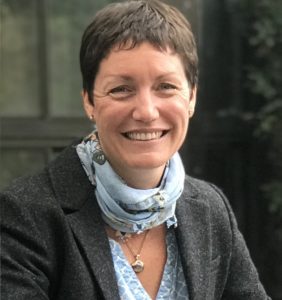Daryl Haggard wins 2020 Breakthrough Prize for Physics
 Daryl Haggard, assistant Professor in the Department of Physics at McGill University and member of the Center for Research in Astrophysics of Quebec (CRAQ) has been honoured for her contribution to the field physics as a joint recipient of the 2020 Breakthrough Prize in Fundamental Physics.
Daryl Haggard, assistant Professor in the Department of Physics at McGill University and member of the Center for Research in Astrophysics of Quebec (CRAQ) has been honoured for her contribution to the field physics as a joint recipient of the 2020 Breakthrough Prize in Fundamental Physics.
Haggard received this prize as a part of the 347-member Event Horizon Telescope (EHT) Collaboration Team that received this award for capturing the first image of a supermassive black hole, taken by means of an Earth-sized alliance of telescopes. The prize recognizes individuals or teams who have made profound contributions to human knowledge.
As a member of the EHT’s Multi-wavelength Science Working Group, she contributed to the paradigm-shifting observations of the gargantuan black hole at the heart of distant galaxy Messier 87 – its mass equivalent to 6.5 billion suns – in April 2019. The global collaboration of scientists, scattered among 60 institutions, used eight sensitive radio telescopes strategically positioned around the world in Antarctica, Chile, Mexico, Hawaii, Arizona and Spain, to capture the very first image recorded of a black hole.
By synchronizing each telescope using a network of atomic clocks, the EHT team created a virtual telescope as large as the Earth, with a resolving power never before achieved from the surface of our planet. After painstakingly analyzing the data with novel algorithms and techniques, the team produced an image of this galactic monster, silhouetted against hot gas swirling around the black hole, that matched expectations from Einstein’s theory of gravity.
About the Breakthrough Prize
Established in 2011, the Breakthrough Prize, also known as the “Oscars of Science,” has grown quickly in terms of its international prominence due to its generous awards, with this year’s prizes totaling over $21 million. With the backing of several key technology trailblazers including Priscilla Chan and Mark Zuckerberg, Ma Huateng, Yuri and Julia Milner, the prize recognizes the worlds’ top scientists in the fields of Life Sciences (up to four per year), Fundamental Physics (one per year) and Mathematics (one per year).
Source:
Robert Lamontagne
Public outreach
Centre de recherche en astrophysique du Québec
Phone : (438) 495-3482
lamont@astro.umontreal.ca
